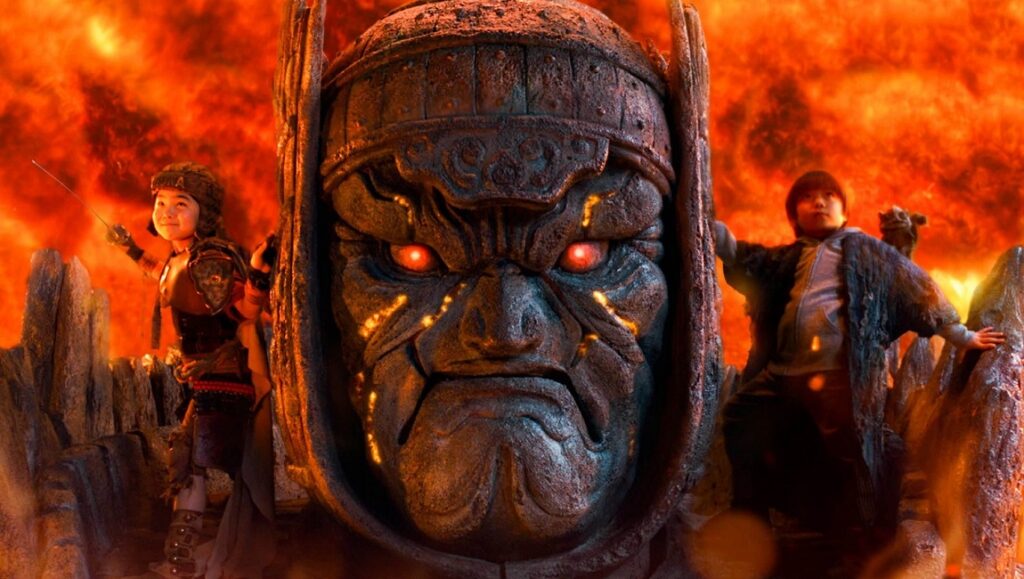From a certain perspective, there are two types of Takashi Miike movies. The director has worked in more genres across a greater number of films than almost anyone else working, but his career and his reputation can be cleanly divided into two categories: the films that see distribution and promotion in America and those that don’t. The former camp, like the recent First Love and Blade of the Immortal, are the films that inform Miike’s image in the west as Japan’s foremost purveyor of violent, extreme genre cinema. The other category includes some more of the same, to be sure, but also consists of wild, colorful adaptations (Ace Attorney, JoJo’s Bizarre Adventure) and even a few children’s films. So while The Great Yokai War — Guardians might look to someone only familiar with Miike’s American image like a kinder, gentler Takashi Miike, the director has been here before — literally, this is a sequel to his 2005 film — and in many ways it’s not only just a Takashi Miike movie, but a minor one at that. Still, there’s enough imagination on display to fill several movies and the film’s approach towards its subject is refreshing in contrast with American blockbusters.
Other than the two lead characters, young brothers Kei and Dai Watanabe, The Great Yokai War is light on human characters and is instead packed with yokai — spirits that populate Japanese folklore and take all sorts of forms — realized here with a mix of prosthetics and CGI. The Watanabes are descended from a great human warrior and thus remain the only hope of these spirits of preventing an imminent war. Ranging from a humanoid with a protruding brain to an army of computer animated tanooki (in essence, magic raccoons), the yokai are the easy highlight of the film, its every frame filled with personality just by virtue of featuring their wildly colorful costumes and cartoonish personalities. Their powers are realized through brightly colored CGI that lean into a fantastic aesthetic far removed from the fidelity-chasing graphics of Western blockbusters, allowing animation to be just that rather than a lackluster recreation of reality.
For the first half of the film, its imagination is enough to carry it; a new yokai catches the eye in nearly every scene, each with some new way to fascinate. But eventually the film starts to run out of steam and when the initial wonder wears off, the uncharacteristically staid filmmaking starts to show its inability to move things forward. For all the creatures and effects galore, The Great Yokai War is a film of characters in a few different rooms having conversations that largely lack momentum, with vague conflicts between characters that don’t really go anywhere. In the end, it’s fun to see a Takashi Miike movie with “war” in the title proudly embrace nonviolence and the power of friendship, but it feels like superficial kids-movie stuff, an alternative to conflict the film doesn’t endeavor to deal with.
Published as part of Japan Cuts 2021 — Dispatch 2.


Comments are closed.